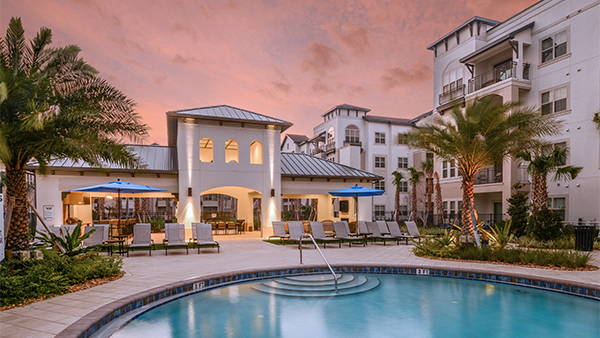Although it has been over ten years since the financial crisis of 2008, I still remember how this country got completely rocked. I’ll never forget the fear and uncertainty I felt back then, wondering if I was going to have a business when it was all over. We made it through and from that moment on I realized I had to adapt my business structure and my revenue streams to withstand the next crisis. I just never imagined that it would be a pandemic that would have an even bigger impact on commercial real estate than the 2008 financial crisis.
While the last crisis was all about credit and liquidity, the pandemic nearly wiped out the demand for commercial space because of work-from-home orders, shutdowns, quarantines, supply chain disruptions, unemployment spikes, and a huge drop in consumer confidence.
Thankfully, it looks like we are turning a corner, but commercial real estate is going to have a longer recovery than most other sectors because of the huge hit it took. How fast commercial real estate makes its comeback will depend largely on our capability to increase the speed and efficiency of virus testing and deploying the vaccines. Then we also have to see how people handle the continued need for social distancing. Finally, we will have to determine how the stimulus package will affect the situation.
Whatever happens, commercial real estate will look a lot different than it did before COVID-19. While various industries, markets, and property types will come back at different speeds, the satellite services surrounding commercial real estate like property management, architecture, construction, and appraisal will become even more important as the industry adapts to the new reality. One sector of the industry that is going to have to majorly adapt is brokerage.
I see the comeback happening in three stages, and the first one is happening right now. We’re already seeing increases in rent collection in industrial, office, retail, hospitality—and my favorite—multifamily. As anyone who knows me can guess, I’m particularly pleased about the bounce back in multifamily, which is registering rent collections at about 90 percent. The pandemic presented unique opportunities for me and my investors in the multifamily sector, with even more opportunities on the horizon. I’ve also got my eye on office space and industrial, which are both showing signs of promise since they can be more easily reconfigured to suit post-pandemic needs of business owners.
The second stage of the recovery will happen over the next nine to twelve months but it’s going to be a slow process as assets will most likely be reopened in phases and the possibility of additional spikes in COVID cases could disrupt that process. However, I am confident that multifamily will not only stabilize more quickly but strengthen as people will always need a place to live—just like they need food.
The third stage of the recovery won’t come until much later in the distant future as we all adjust to a post-COVID world in which we are prepared for the next crisis, be it financial, viral or something else. As I have said in the past, the major urban markets like New York City, Los Angeles, Chicago, Philadelphia, Detroit, and Washington, D.C. will be hit harder. This is because employees who are allowed to work from home are fleeing densely populated cities for the suburbs where they can have more space. As many businesses are making working from home a permanent policy, I see a continuing demand for units in multifamily properties. They offer renters an affordable residence in a clean, modern, and well-maintained environment with premium-grade, onsite amenities in proximity to schools, supermarkets, and retail centers.
Opportunistic investors like myself are already searching the market for distressed properties while the risk-averse will continue to play it safe and remain in a holding pattern. Right now, a lot of investors are limited to looking at properties virtually but take it from me—real estate is a hands-on asset that needs to be seen up-close and personal. You have to see it in order to get a sense of the property’s potential along with whatever assets surround it.
The current situation makes site visits, appraisals, transacting and closing a lot more complicated.
This is why if you can’t go personally inspect a potential acquisition, it’s crucial to partner with an investment firm who can not only monitor the market constantly but also jump on a property as soon as it becomes interesting. It won’t be anything close to business as usual until the lockdowns end, air travel resumes like before, and people feel comfortable about traveling and interacting in person.
There’s no doubt that the real estate industry will be permanently transformed after the pandemic just like it was after the Savings & Loan collapse, the tech bust, 9/11 and the Great Recession. Thankfully, everyone agrees that the worst is behind us and the economy will be much stronger in about a year from now. By 2022, we will be stable and even thriving again. After all, new challenges bring new opportunities.
























0 Comments